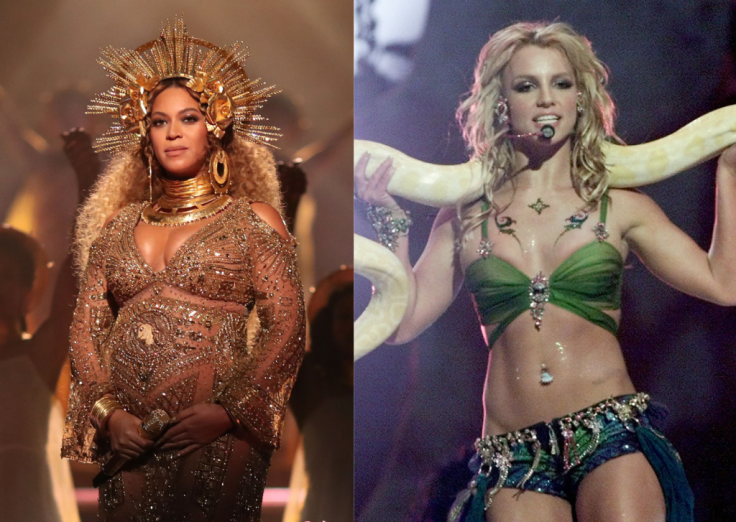
The advent of the digital age has democratized music production, fostering a diverse array of sounds and styles. However, this democratization has also made it increasingly challenging for artists to stand out and maintain relevance. The question arises: has the era of pop royalty and icon status come to an end?
Pop music has consistently transformed itself--the genre's dynamic nature is evident in its willingness to incorporate elements from niche or specific genres, blending diverse styles and adopting elements of its contemporaries and transmuting them into a product with broad appeal. No two eras of pop music sound alike, each possessing a distinct sound entirely indicative of their time. Amidst these changes, the enduring institution of the pop icon remains a significant aspect of the cultural lexicon of pop music.
The concept of pop royalty is one of the most pervasive and long-standing traditions in the realm of pop music--the metaphorical use of honorific nicknames by fans and the media serves to signify an artist's importance and status amongst their peers. These titles often draw inspiration from religious, familial, and most commonly, royal and aristocratic references.
While they are not officially designated roles, some of these titles have become so ubiquitous to certain artists that simple Google searches such as "Queen of Pop" and "Princess of Pop" will be redirected to Madonna and Britney Spears, respectively, though others have been referred to as such. Others, like Michael Jackson and Cher, enjoy their statuses as the King and Goddess of pop without rival. This of course is not exclusive to pop music, as artists like Elvis Presely and Bob Dylan are referred to as kings of their respective genres, though the fervent nature of pop fandom, or "standom", makes it quite notable in comparison.
The late 2010s and 2020s have seen a surge of independent artists leveraging online platforms to catapult themselves into the spotlight. Yet, the question remains whether these newcomers can attain (and maintain) the stratospheric fame achieved by artists from the past.
While it might be premature to definitively assert the demise of pop's ruling class, there is a palpable shift in the industry. The past two decades have witnessed rapid technological strides, making music production accessible to anyone with a computer. Crafting and sharing your own music with the world is now easier than at any other point in history, eschewing the need for record labels, producers, distributors, and promoters that were once required barriers of entry, with artists utilizing online platforms to achieve significant online recognition.
This is a double-edged sword, as the overwhelming variety and choice make it much harder to stand out and remain relevant for more than a year or so. Many artists who experienced meteoric success during the COVID-19 pandemic have faded into near obscurity just three years later. The lack of barriers to entry also coincides with a lack of training, perseverance and innate star quality.
To be sure, the new class of pop stars is not bereft of its standouts--artists like Olivia Rodrigo and Billie Eilish draw massive crowds of fans and boast impressive streams and album sales. Still, it remains to be seen whether these newer artists will achieve the levels of fame and longevity in the social media era.
Many of today's top performers are those who rose to prominence between the late '90s and the mid to late 2000s. Luminaries such as Beyoncé, Taylor Swift, and Lady Gaga are seen as some of the final bastions of an era marked by unrivaled crowd-pulling power and intrigue--from Beyoncé and Taylor Swift's record-breaking tours and fervid, obsessive fan bases to younger generations discovering Gaga's older music via viral trends, many pop fans do not feel confident that newer acts will achieve similar levels of reverence.
One user on FOTP, a pop music and culture news discussion forum posed this question: Is Lady Gaga the last huge pop star? "I just got to thinking about how stars nowadays seem to burn out really quick, probably much thanks to social media, Tik Tok etc. The older generations of pop stars also had a way bigger 'status' and this kind of 'mystique' about them... probably also because of no social media." The replies indicated a lack of faith, with another user replying "Probably not. The era of Pop stars [is] over after TikTok."
Other discussion threads have drawn similar conclusions, a post on r/popheads, a Reddit page dedicated to discussing pop music and culture, posed a similar question. One user responded:
"I think it's done. With the way media consumption is [set up] today, anything can be avoided. Part of being an icon is being unavoidable...For example, Olivia Rodrigo is looked at as this huge megastar. Yet so many people outside of her target demographic don't have a clue who she is or any of her songs. Compare that to like Britney in 2000. Not everyone may have listened to her album or watched a biography, but they knew the name or at the very least could sing the chorus to any one of her hits. That concept is completely gone."
Another echoed the sentiment, once again pointing to the prevalence of social media:
"I feel like the word icon is often misused so with that in mind there's no way that we will be able to tell if any of the new pop artists will become true icons but I think pop stars in general are going the way of movie stars. With the internet and social media giving people 24/7 somewhat unfiltered access to celebrities, it's hard for to have just 3/4 huge mega stars that everyone knows about. There are people out here with 20 million+ followers that I've never heard of in my life because algorithms make things so segregated to everyone's personal interests..."
This general feeling of a bygone era mirrors the credo of popular gossip blog popculturediedin2009, which established its prominence in the world of pop culture discussion through cataloging and archiving seminal moments in pop culture history. Indeed, it seems as though the death march of the pop icon, like pop culture in general, has been picking up pace.
Celebrities are no longer mysterious and otherworldly; They are your friends. They are just like you. At the very least, this is the image they painstakingly try to convey. In a world of vast wealth inequality, the rich and famous are less often revered than they are ignored or even hated. Royalty does not carry the positive connotations it once held and is likely unachievable given the cultural landscape. Once again, it is entirely too soon to make conclusive judgments about the demise of pop royalty, though current trends and attitudes seem to indicate the end.
© 2025 MusicTimes.com All rights reserved. Do not reproduce without permission.







